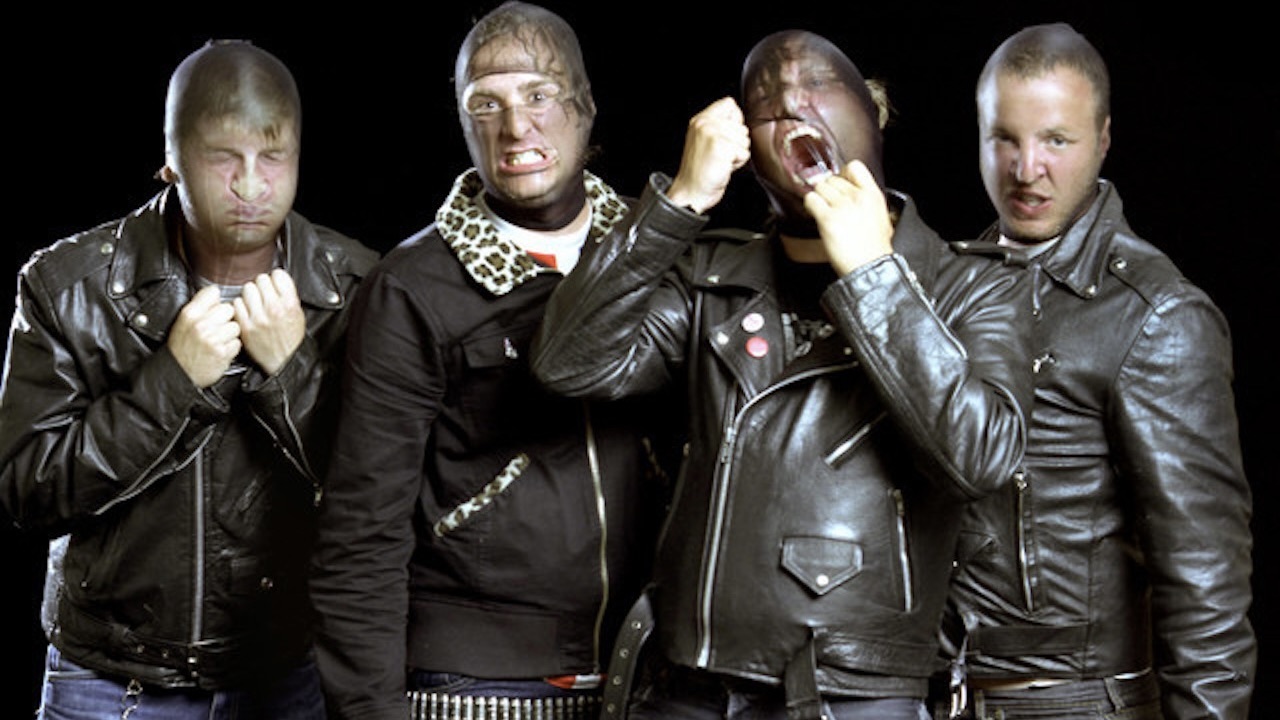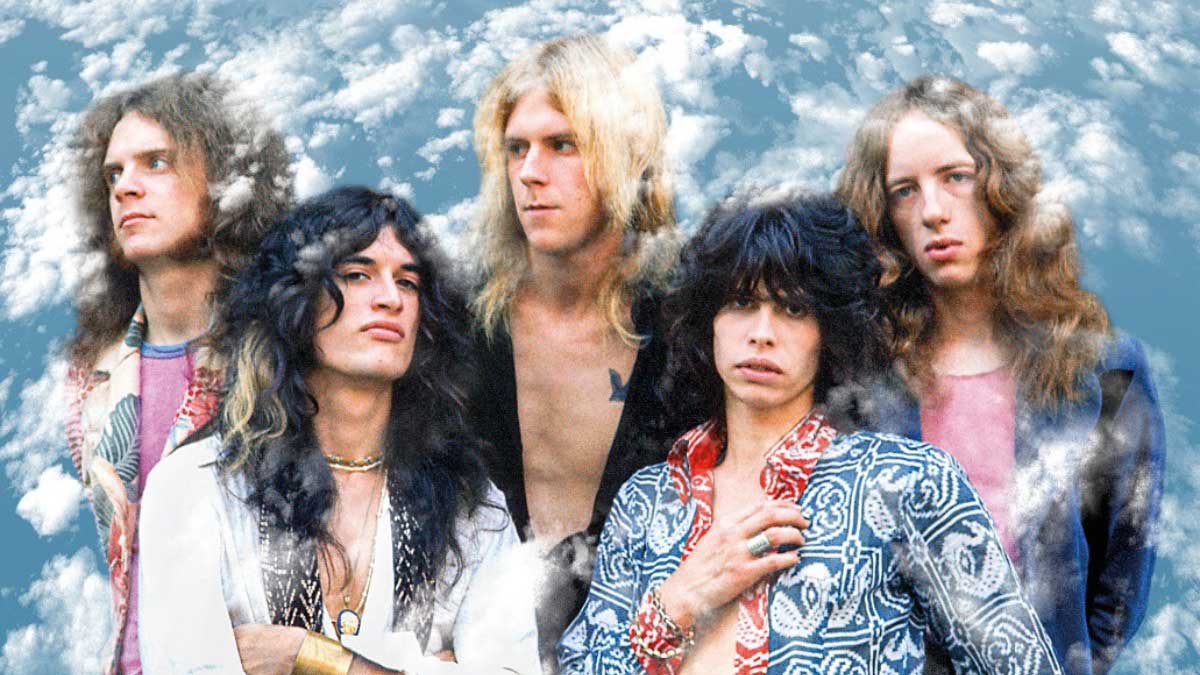Randy are the greatest rock 'n' roll group you've never heard. But you can change that right now
The music business, like life, isn't just and fair. If it was, Randy would be bigger than Jesus

May 2, 2023 brought exciting news for fans of high-energy European punk ’n’ roll. A global statement declared that a Swedish act were at last returning to the scene with their first album for more than a decade, and the group’s singer promised mischief and fireworks galore.
“There’s no maturity or anything like that bullshit, because who wants mature rock ’n’ roll?” he opined. “That’s where people go wrong, I feel. It’s like rock ’n’ roll, but adult, [and] nobody wants that! That’s literally taking the good shit out of it. Rock ’n’ roll can’t grow up. It is a perpetual teenager and this album feels exactly like that, which is all down to our excitement – and you can’t fake that shit.”
These words belong to the reliably charismatic Howlin’ Pelle Almqvist, frontman with The Hives, assuming his place on the stump to announce the release of The Death of Randy Fitzsimmons. Good news. Great stuff. But in an ideal world, or in a parallel universe, the quote would be attributable to one Stefan Granberg, the guitarist and lead singer with fellow Swedes Randy. Although small the constituency may be, there are those among us who would regard this clarion call as heralding the long-overdue return of one of the most exciting bands of all time.
Others, of course, will ask - probably are asking - Who?!?! Well yes, who indeed. But check Spotify, and you'll see that Randy's most-streamed track has been played over 154 million times. Except that it hasn't, obviously, because Spotify, a Swedish company, remember, has placed a track by an entirely different artist at the top of Randy's listing. FFS. The ignominy! And their loss. For in the first decade of the 21st century, this all-too-ordinary looking quartet from Hortlax released three albums in five years that managed to encapsulate pretty much everything that is great, and unbiddable, about rock ’n’ roll in its purest form.
With a lineage that can be traced right back to the greats of the 1950s, 2001’s The Human Atom Bombs combined the rattle and roll of Little Richard and Jerry Lee Lewis with the radical edge of a protest movement that preferred to do its business away from the ballot box. Four years later, the damn-near-peerless, impossibly brilliant Randy The Band delivered as many apparently effortless back-to-back bangers as is possible to cram on two sides of black vinyl. As to why hardly anyone noticed these vertiginous achievements, one can only wonder. Maybe it’s the vagaries of international capitalism. Maybe the shadowy hand of the illuminati is what stopped these plucky red-rockers from receiving what is rightfully theirs.
Actually, tragically, what was rightfully theirs. Past tense. The quartet - the line-up of which was completed by drummer Fredrik Granberg, bassist Johan Gustafsson and guitarist Johan Brandstrom – haven’t been heard from for going on a decade and a half now.
That Randy are a band that can be depended upon to come out swinging at powerful forces can be heard on the album sandwiched in the middle of their towering triumvirate. Released on May 6, 2003, the 12-track Welfare Problems – its authors’ fifth LP overall – spits and snarls with an oppositional fury that in lesser hands could well sound brittle, or even boring. Not here though, not with the skill with which these music-makers approach their targets. “Power in the hands of those rich enough to buy it, we’re taking it back with this musical riot, politicians, police and the laws, kicking them out with our rocking armed force,” Stefan Granberg sings, with all due conviction, on opening track Dirty Tricks.
Really, one can only marvel at brilliance such as this, and at chutzpah such as this, in no small part because the claim is laughably nonsensical. As we all know, rock ’n’ roll is in no position to overthrow parliamentary legislation, the forces of law and order, and the entirety of a political class. In almost all cases, it merely provides a credible soundtrack to the idea of such eventualities. That Randy understand this perfectly well is evinced in the grandeur of their claim; the true source of their power, meanwhile, lies in their ability to make music so persuasive that listeners believe that such radical outcomes can be achieved with relative ease. “Burning tires, building bombs throwing bricks,” they sing – the pronunciation of “bricks” elongated like footage of airborne masonry arcing in slow-motion towards its helpless target – with the authority of revolutionaries suddenly appearing on your television screen barely minutes after storming the presidential palace. As in, “We’re the ones in charge now, boys and girls. We’re the ones making the decisions.” And, hey, you may say that they’re dreamers, but they’re not the only ones.
Which is why the quotes spoken recently by Howlin’ Pelle Almqvist could easily be attributable to Randy. Because rather than being – quote unquote – adult rock ’n’ roll, Welfare Problems brims with the evergreen possibilities of the eternally optimistic. Away from the music, sentiments as entrenched as these are the province of ideologues and extremists; people who are boring, at best, and dangerous at worse. But in song it’s reasonable to demand anything, so knock yourself out. An end to violent policing? Check. (A Man In Uniform). A viable alternative to societal norms? You got it. (Devilish). An end to the kinds of lies that pollute children’s minds all the way to adulthood? Why, of course. (X-Ray Eyes).
The latest news, features and interviews direct to your inbox, from the global home of alternative music.
While some albums proffer escapism in the form of songs about virility, or dragons, or triumph on the battlefield in ancient times, Welfare Problems offers the prospect of better days for people who wish that the times they were a changing. And while this new dawn may never come, the effort invested by Randy in kicking against the pricks provides its own rich reward. Such are their achievements, in fact, that in a just and fair world they would be remembered as one of the greatest rock’n’roll bands of their day.
But the world ain’t just and fair. And don’t Randy just know it.

Barnsley-born author and writer Ian Winwood contributes to The Telegraph, The Times, Alternative Press and Times Radio, and has written for Kerrang!, NME, Mojo, Q and Revolver, among others. His favourite albums are Elvis Costello's King Of America and Motorhead's No Sleep 'Til Hammersmith. His favourite books are Thomas Pynchon's Vineland and Paul Auster's Mr Vertigo. His own latest book, Bodies: Life and Death in Music, is out now on Faber & Faber and is described as "genuinely eye-popping" by The Guardian, "electrifying" by Kerrang! and "an essential read" by Classic Rock. He lives in Camden Town.
